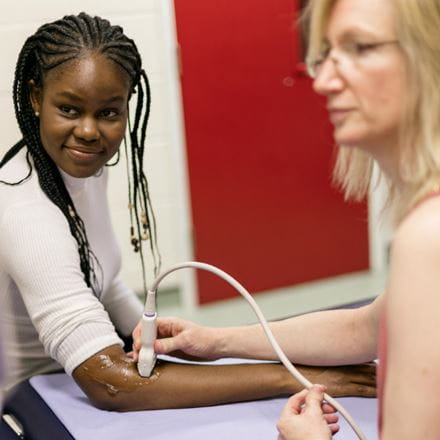Staff in our School are experts in their areas of research, and have backgrounds and professional experience as rehabilitation practitioners or sports science consultants.
Our academics are members of one or more research groups in our School, where they collaborate on a range of projects and supervise postgraduate research students. Throughout the year we invite external experts to deliver research seminars or specialist workshops, so you have access to ideas and research from other institutions.
Our staff have extensive professional experience. They have attended the Olympic Games, World Championships, European Championships and the Commonwealth Games in sports science and sports medicine support capacities, and other team members currently work at national and international level in various sports. Our physiotherapy leaders have worked for a range of health providers including the NHS and private clinics, giving them broad experience with a range of diverse clients.












